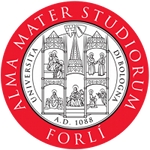
tetraTeTra
Tecnologie per la Traduzione: Ritorno all'Innovazione
TranslationQ/RevisionQ: Automated Translation Process with Real-time Feedback & Revision
[Questo workshop si terrà in inglese]
RevisionQ is a stand-alone CAT tool, part of a comprehensive CAT environment, called TranslationQ. It works in a "track changes" mode where the reviser inserts comments, corrections and suggestions for a better translation and for re-use. The main innovative feature is the possibility of building up a memory with corrections and comments by a human translator/reviser.
Revisers who need to revise e.g. a translation assignment of twenty candidates (e.g. in a translation test) start correcting the translation of candidate one, in which they build up “a revision memory”; for each next candidate, this memory is updated, and can be saved and re-used later by the same reviser, another reviser, and even the same and/or another translator. Based on the revision of an earlier translation, segments that have already been revised will be displayed for approval and/or editing. RevisionQ allows the reviser to mark the segments (items) in the source text where the reviser has already made some comments. When RevisionQ hits a segment for which a comment has been entered earlier, it will display automatically the previously entered reviser's comments. The reviser can always edit each comment thanks to an Edit mode which will adapt retro-actively and pro-actively the revision of the items. It will also be possible to link existing or new revision memories, databases, and/or TMs to RevisionQ in order to reduce the reviser's and/or translator’s job. In other words, external databases will help the reviser and the translator choose the right terms and phrases.
What is essentially useful in RevisionQ, is the fact that each next revision will generate exactly the same revision comments. More, revising a number of similar texts will reduce enormously the very time-consuming task of revising translations. On the account of the “revision memory” this tool will guarantee an overall consistency in each revision, at all levels, ranging from punctuation to language register.
RevisionQ will benefit businesses, universities and public services on the account of: (1) Time-saving and efficient revision; (2) Transparent and objective evaluation criteria and implementation; (3) Visible and justifiable revision statistics; (4) Consistency and overall equality in marking; (5) Statistics allowing future research and adequate training in the area of multilingual content management.
Regarding the evaluation itself, RevisionQ allows each translation project to be quoted in exactly the same way (using PIE or Analytical evaluation). An objective and fully exchangeable evaluation scheme will reassure all translators that their work has been quoted fairly. RevisionQ is able to count and display the errors automatically, and to display the marks in a separate area.
Bionote
Prof. Dr. Hendrik J. Kockaert lectures in French Linguistics, Terminology, Legal Translation, and Translation Technology at KU Leuven, Faculty of Arts, in Antwerp. Since August 2015, he is Dean of the Faculty of Arts on Campus Sint Andries in Antwerp. He is a Research Associate at the University of The Free State, Republic of South-Africa.
He is a certified LICS Auditor for granting ISO 17100 certification to translation services, and he is the Editor-in-Chief of the Journal of Internationalisation and Localisation [JIAL].
He is the Chairperson of ISO TC 37 SC 1 and a member of NBN, the Belgian Standardization Institute. He is an expert in the development of ISO terminology standards.
He is a certified ECQA (European Certification and Qualification Association) Terminology Manager Trainer and Job Role Committee Provider.
He was the coordinator of the following projects financed by the European Commission: QUALETRA (JUST/2011/JPEN/AG/2975), and LIT Search (JUST/2013/JPEN/AG/4556).
He publishes in the areas of terminology, translation quality assurance, and translation technology.
|
Aggiornato 20/07/2016
|